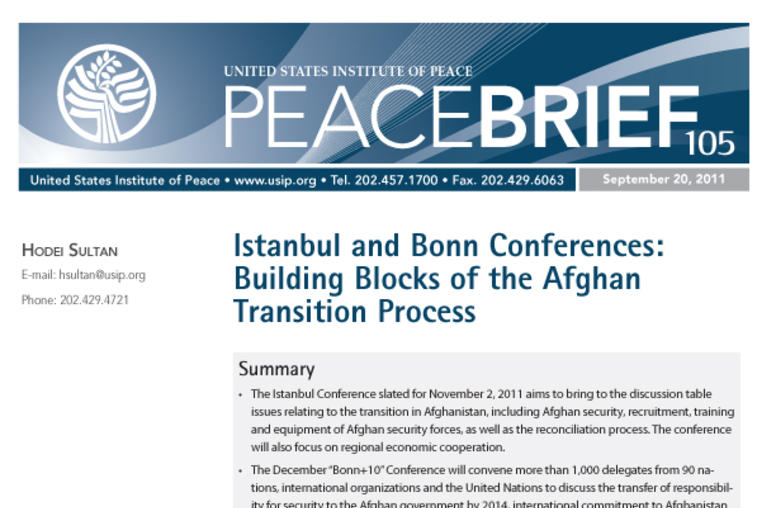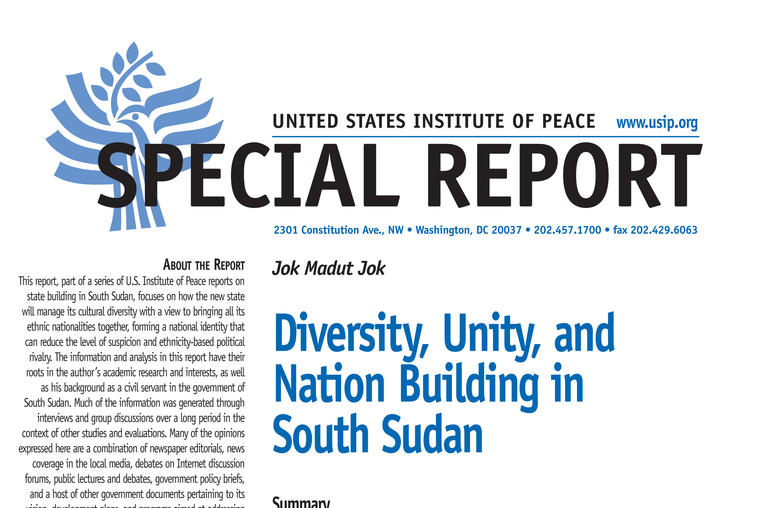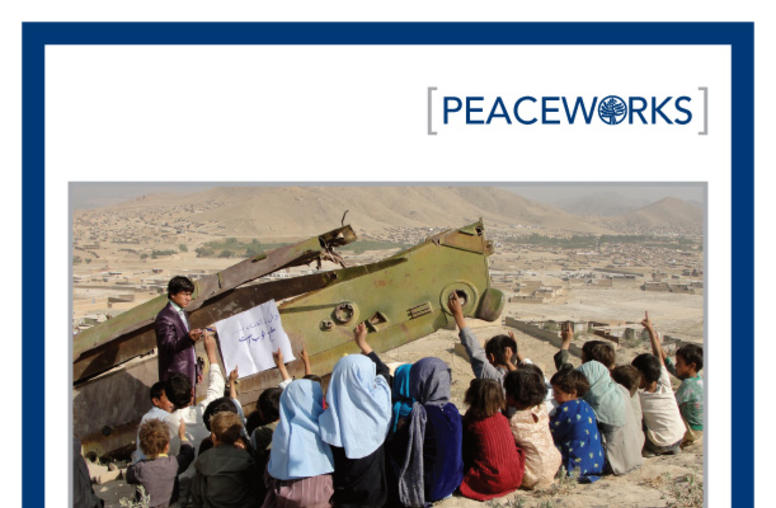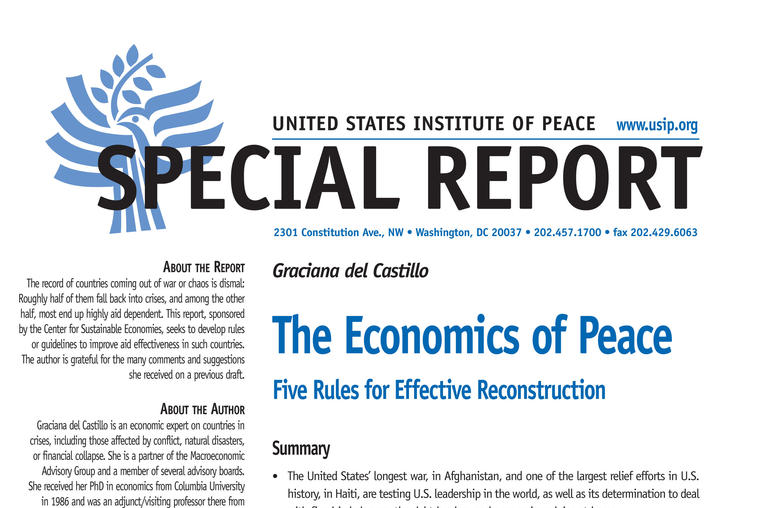Publications
Articles, publications, books, tools and multimedia features from the U.S. Institute of Peace provide the latest news, analysis, research findings, practitioner guides and reports, all related to the conflict zones and issues that are at the center of the Institute’s work to prevent and reduce violent conflict.
USIP to Examine Yemen’s Tattered Justice Sector
Yemen is seeing some of its worst violence this year with at least three subsequent days of fighting this week between divided government forces, tribal groups and unarmed pro-democracy protesters, inching the country ever closer to full-blown civil war.
USIP Conference Assesses Social Media’s Role in Conflict
The new role of social media in popular revolutions and other political change is not the inevitable force for good some commentators portray it as, but its complicated effects are promoting a wider transfer of geopolitical power from traditional nation-states to individuals and institutions, according to speakers at a conference held at the United States Institute of Peace (USIP) on September 16.
Haiti in Waiting
Former USIP Jennings Randolph Peace Scholar Louis-Alexandre Berg, who recently returned from a trip to Haiti, provides an update on the political situation and Haitian President Michel Martelly’s plans to rebuild the conflict- and disaster-prone country.

Istanbul and Bonn Conferences: Building Blocks of the Afghan Transition Process
This brief highlights two upcoming major conferences that will play a critical role in the future of Afghanistan. Hodei Sultan, the author, is a program specialist for Afghanistan and Pakistan programs with USIP’s Center for Conflict Management.
Syria's Opposition
The uprisings in Syria that started in March have sparked international condemnation and concern over human rights abuses by the Assad regime. USIP’s Steven Heydemann discusses the state of Syria’s opposition and why the U.S. may be hesitant to recognize an emerging opposition.
State Official to Discuss U.S. Responses to Humanitarian Crises
In the humanitarian crisis hitting the Horn of Africa, the international community faces a complex set of factors that extend beyond the need to relieve the region’s vast famine and human dislocation.
World Recognizes International Day of Peace
To honor this worldwide event, USIP presents some highlights of peacebuilding around the world in 2011.

Diversity, Unity, and Nation Building in South Sudan
South Sudan’s success as a nation depends on getting its many distinct ethnic groups to promote, teach, and celebrate a shared cultural heritage. In this new Special Report, USIP Senior Fellow and former South Sudan government official Jok Madut Jok urges concrete steps toward creating a national identity.

Designing a Comprehensive Peace Process for Afghanistan
This report, sponsored by the Center for Conflict Management at the U.S. Institute of Peace, draws on comparative research literature on peace processes to identify lessons applicable to Afghanistan and makes recommendations to the international community, the Afghan government, and Afghan civil society for ensuring a more comprehensive, successful, and sustainable peace process.

The Economics of Peace
Efforts to rebuild economies in postconflict zones around the world underscore a central lesson: development practices that work in peaceful countries often don’t apply to countries in transition.